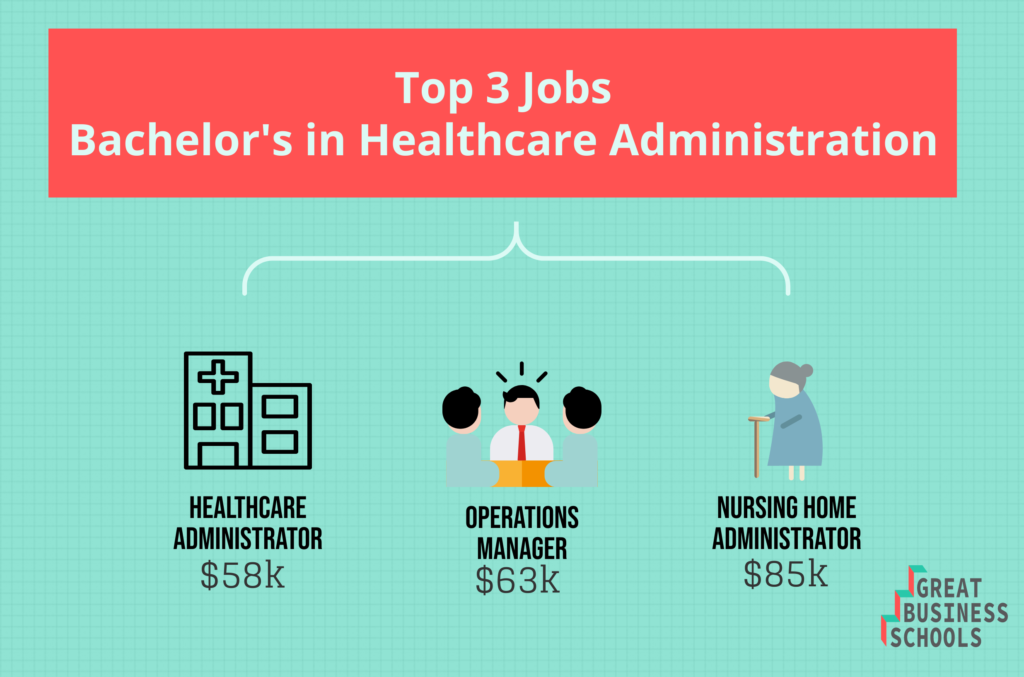Healthcare Degrees with Job Prospects: Exploring Lucrative Career Paths

In today’s rapidly evolving world, the healthcare industry stands as one of the most robust and essential sectors. As medical advancements continue to unfold, the demand for healthcare professionals grows in tandem. Pursuing a healthcare degree opens doors to a plethora of promising job opportunities. This article delves into various healthcare degrees and their associated job prospects, shedding light on the exciting and rewarding paths available for aspiring healthcare professionals.
Table of Contents
- Introduction
- The Significance of Healthcare Degrees
- Exploring Different Healthcare Degrees
- Bachelor of Science in Nursing (BSN)
- Doctor of Medicine (MD)
- Doctor of Pharmacy (Pharm.D)
- Bachelor of Health Administration (BHA)
- Master of Public Health (MPH)
- Physician Assistant Studies (PA)
- Thriving Careers in Healthcare
- Registered Nurse (RN)
- Medical Doctor (MD)
- Pharmacist
- Healthcare Administrator
- Epidemiologist
- Physician Assistant (PA)
- The Influence of Specializations
- Nursing Specializations
- Medical Specialties
- Pharmaceutical Specializations
- Navigating the Job Market
- Job Satisfaction and Growth
- SEO Optimized Career Pathways
- Conclusion
Introduction
Healthcare is a dynamic field that offers an array of rewarding opportunities for individuals with a passion for helping others. This article explores the ins and outs of pursuing a healthcare degree and how it can lead to a fulfilling and impactful career.
The Significance of Healthcare Degrees
Healthcare degrees are not only a gateway to a stable career but also a chance to make a meaningful difference in people’s lives. As the global population continues to grow and age, the demand for well-trained healthcare professionals is on the rise.

Exploring Different Healthcare Degrees
Bachelor of Science in Nursing (BSN)
A BSN degree equips individuals with the skills needed to become registered nurses, playing a vital role in patient care. From hospitals to clinics, BSN graduates are in high demand.
Doctor of Medicine (MD)
Becoming a medical doctor requires extensive education and training. MDs diagnose, treat, and prevent illnesses, making a significant impact on patients’ well-being.
read more about Medical School Preparation Tips: Your Path to Success
Doctor of Pharmacy (Pharm.D)
Pharmacists are essential in providing medication expertise. A Pharm.D degree prepares individuals to dispense prescription medications and offer valuable healthcare advice.
Bachelor of Health Administration (BHA)

For those interested in healthcare management, a BHA degree opens doors to administrative roles within medical facilities, contributing to the efficient operation of healthcare organizations.
Master of Public Health (MPH)
An MPH degree focuses on public health issues, equipping professionals to tackle health challenges on a broader scale, such as disease prevention and health education.
Physician Assistant Studies (PA)
PAs work alongside physicians, diagnosing illnesses, developing treatment plans, and often performing medical procedures. This degree offers a balanced blend of medical theory and practical application.
Thriving Careers in Healthcare
:max_bytes(150000):strip_icc()/what-can-i-do-with-a-masters-degree-in-psychology-2795629-color-V2-4968996fd73f44e1873bd655388a2588.png)
Registered Nurse (RN)
RN’s form the backbone of healthcare, providing patient care, administering medications, and collaborating with medical teams to ensure optimal outcomes.
Medical Doctor (MD)
Medical doctors specialize in various fields, from pediatrics to surgery, offering diverse options for those seeking a hands-on approach to medicine.
Pharmacist
Pharmacists dispense medications and offer advice on drug interactions, ensuring patient safety and optimal treatment outcomes.
Healthcare Administrator
Healthcare administrators manage medical facilities, handling everything from financial operations to personnel management.
Epidemiologist
Epidemiologists study patterns of diseases to control outbreaks and improve public health, playing a crucial role in disease prevention.
Physician Assistant (PA)
PAs work closely with doctors, performing examinations, diagnosing illnesses, and developing treatment plans.
The Influence of Specializations
Choosing a specialization can enhance career prospects. Nursing offers specialties like pediatrics, critical care, and oncology. In medicine, specialties range from cardiology to neurology.
Navigating the Job Market
The healthcare industry is renowned for its job stability. With the aging population and continuous medical advancements, healthcare professionals are consistently in demand.
Job Satisfaction and Growth
Healthcare careers offer immense job satisfaction due to their ability to make a positive impact on patients’ lives. Additionally, the field provides opportunities for career growth and advancement.
SEO Optimized Career Pathways
The healthcare industry is not only promising for aspiring professionals but also for those seeking SEO opportunities. Healthcare-related content is constantly sought after online, creating an avenue for individuals with SEO skills to thrive.
Conclusion
Embarking on a healthcare career journey is a choice that combines compassion, skill, and opportunity. Healthcare degrees pave the way for diverse career paths, each with the potential to change lives. Whether as a nurse, doctor, pharmacist, or administrator, healthcare professionals play a vital role in society’s well-being.
FAQs
- What is the typical timeframe required to attain the status of a registered nurse?
- A: Becoming an RN typically requires a 2-4 year nursing program.
- In the realm of healthcare administration, how much can one expect as the average annual remuneration?
- A: The salary varies based on location and experience, but the average is around $100,000 per year.
- Q: Can I specialize in more than one medical field?
- A: While it’s possible, specializing in multiple fields may require additional education and training.
- Q: What is the job outlook for epidemiologists?
- A: The job outlook is positive, with a projected growth rate of 5% from the previous decade.
- Q: How can I combine healthcare and SEO in my career?
- A: You can create healthcare-related content, optimize it for search engines, and work for medical websites or organizations to improve their online visibility.







 Viesearch - The Human-curated Search Engine
Viesearch - The Human-curated Search Engine

2 Comments